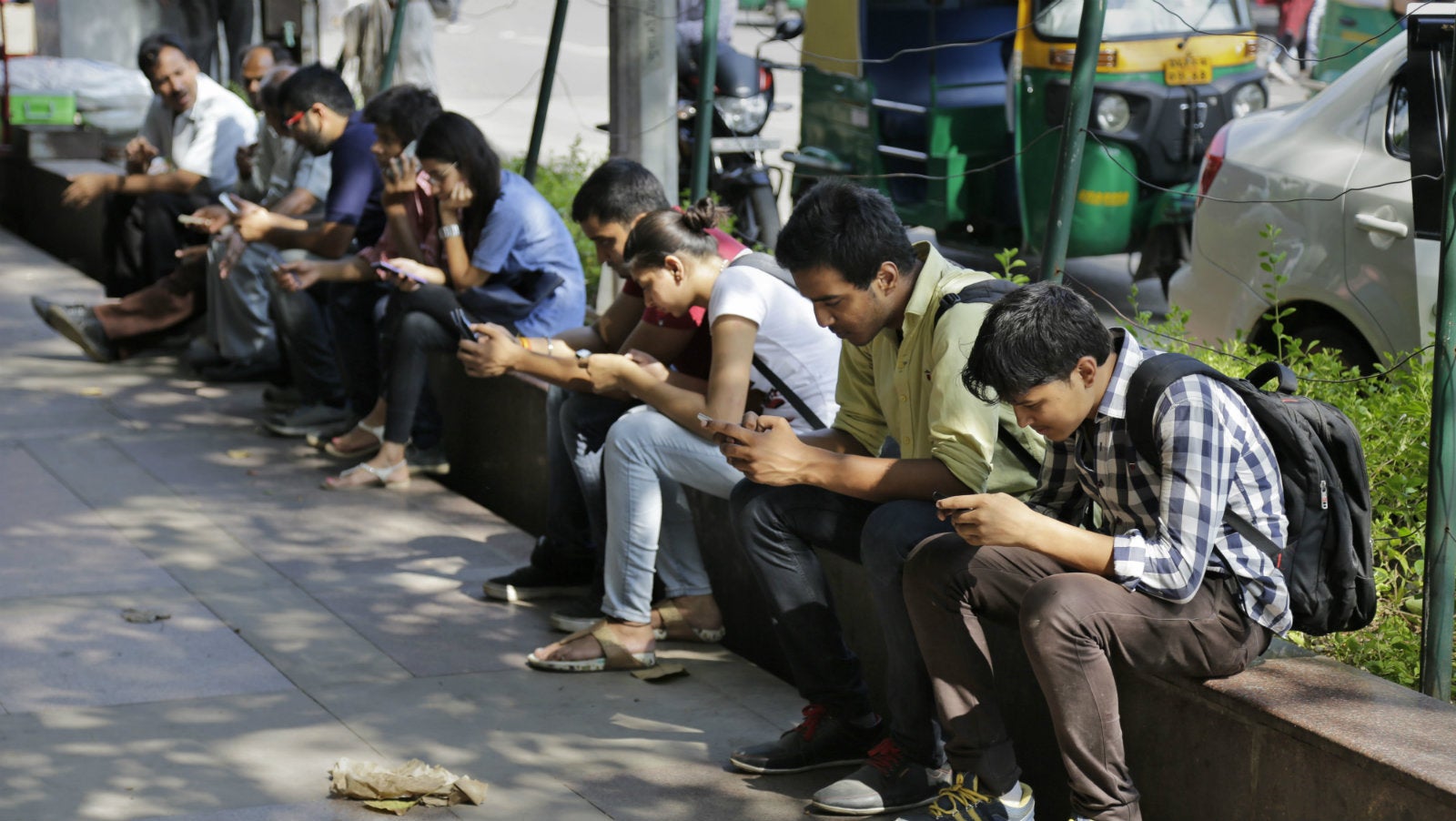India may soon have more internet users than the US
More Indians are getting on the internet than ever before.


More Indians are getting on the internet than ever before.
A report by the Internet and Mobile Association of India (IAMAI) and IMRB International, a market research firm, estimates that by December, India will have 402 million internet users—49% more than last year.
The study has analysed users who have accessed the internet at least once in their life. If monthly active users were considered, then by June 2016, India will hit the 426 million mark.
This means that India could soon surpass the internet user base in the US. In 2015, the US had over 300 million internet users, according to estimates by Statista. India will still be behind China, which has the world’s largest internet user base.
“In October 2015, there were 375 million internet users in India. Currently, India has the third largest internet users’ base in the word but it is estimated that by December, India will overtake the US as the second largest Internet users’ base in the world,” the IAMAI said in a statement. “China currently leads with more than 600 million internet users.”
Here’s how the internet user base has grown in Asia’s third largest economy:
Much of this phenomenal growth is because of smartphones and an increase in rural users.
“While internet in India took more than a decade to move from 10 million to 100 million and three years from 100 to 200 million, it took only a year to move from 300 to 400 million users,” the IAMAI statement said.
In October 2015, around 44% rural users used the internet for entertainment while 37% went online for communication. In urban areas, 71% used the internet for online communication and 67% logged in for social networking.
“(A) major driver for such a noticeable increase in the internet users is the outburst of smartphone users in rural India. The penetration of mobile internet users is currently 9%. Compared to 4% last year, the mobile penetration has grown more than two times,” the report said.
Among major Indian cities, Mumbai has the highest number of active internet users, while Surat leads the pack when it comes to smaller towns.